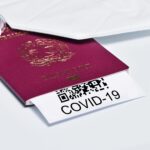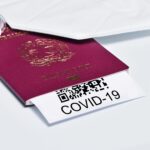
Inadmissibility is a term used in Canadian immigration law to describe a situation in which a person is not allowed to enter Canada. This can be due to a variety of reasons, including criminal activity, health concerns, or security concerns.
Inadmissibility can be divided into two categories: criminal inadmissibility and non-criminal inadmissibility. Criminal inadmissibility is when a person has been convicted of a crime in Canada or abroad, or has committed an act that would be considered a crime in Canada. Non-criminal inadmissibility is when a person is deemed to be a risk to the security of Canada, or is deemed to be a health risk to Canadians.
In order to be deemed admissible to Canada, a person must meet certain criteria. For criminal inadmissibility, the person must have been pardoned for any criminal convictions, or have received a record suspension for any criminal convictions. For non-criminal inadmissibility, the person must be deemed to not be a risk to the security of Canada, or a health risk to Canadians.
Remedies and Ways to Get Around Inadmissibility
A lot of the times, there are way to get around inadmissibility. For example, in cases of medical inadmissibility (the applicant did not pass the medical exam), the applicant may be able to explain and show proof that the medical condition is managed, and is neither a public health risk to the Canadian public, or a financial burden to the public health system.
In cases of a cases of criminal inadmissibility (the applicant had a previous criminal record), the applicant may be able to show that they are deemed rehabilitated, apply for rehabilitation along with the visa application, or getting a record suspension prior to the visa application.
In some cases, a person may be able to apply for a Temporary Resident Permit (TRP) in order to be deemed admissible to Canada. A TRP is a document that allows a person to enter Canada despite being inadmissible. A TRP can be issued for a variety of reasons, including medical treatment, business purposes, or family visits.
We are trained to deal with these complex situation that might come up in an application. Talk to us and we can help you get through this.
The content above is not intended to provide legal advice or opinions of any kind and may not be used for professional or commercial purposes. E&OE.






